EVENTS
At China’s Fourth UPR, Dui Hua Decries Drop in Judicial Transparency
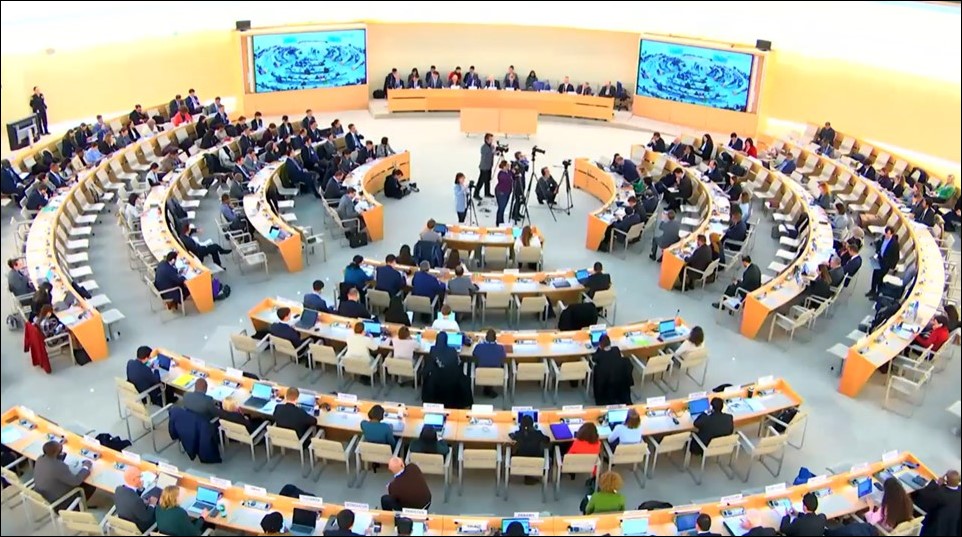
On January 23, 2024, China underwent its fourth Universal Periodic Review (UPR) at the United Nations. Dui Hua has made submissions at all four of China’s UPRs. The UPR is a process to review the human rights records of every member nation every four and a half years. China’s previous UPRs took place in 2009, 2013, and 2018, and Dui Hua made its submission to China’s fourth UPR in July 2023.
This UPR lasted three and a half hours, during which more than 160 member states, a record number, made 428 recommendations on China’s human rights performance. Each member state representative had 45 seconds to speak, a record low for time allotted.
In the period leading up to the UPR, non-governmental organizations (NGOs) like Dui Hua made submissions identifying human rights concerns in China. As part of the process, the Chinese government submits a national report (which is meant to reflect broad input, including from independent civil society in China) and an additional report compiled from the findings of UN human rights mechanisms’ reviews of China since its last 2018 UPR. Inputs from all three are incorporated into the UPR.
Prior to the UPR, US Senators Marco Rubio (R-FL), Tim Kaine (D-VA), Jeff Merkley (D-OR), and Marsha Blackburn (R-TN) sent a letter to Secretary of State Blinken requesting that he highlight human rights violations, identifying the treatment of American citizens, Xinjiang, Tibet, Hong Kong, and rights defenders as key issues. Similarly, rights groups including the World Uyghur Congress, Chinese Human Rights Defenders (CHRD), and the Tibet Action Group urged member states to raise human rights violations during the UPR.
Dui Hua’s Submission
The Dui Hua Foundation has been in Special Consultative Status with the Economic and Social Council of the United Nations (ECOSOC), the body overseeing the UN’s Human Rights Council in Geneva, since 2005.
In its submission to China’s 2018 UPR, Dui Hua acknowledged progress made in judicial transparency, citing thousands of judgments in sensitive cases, especially the Supreme People’s Court’s (SPC) China Judgements Online (CJO) website. At the time, Dui Hua’s 2018 submission was welcomed by China’s Ministry of Foreign Affairs.
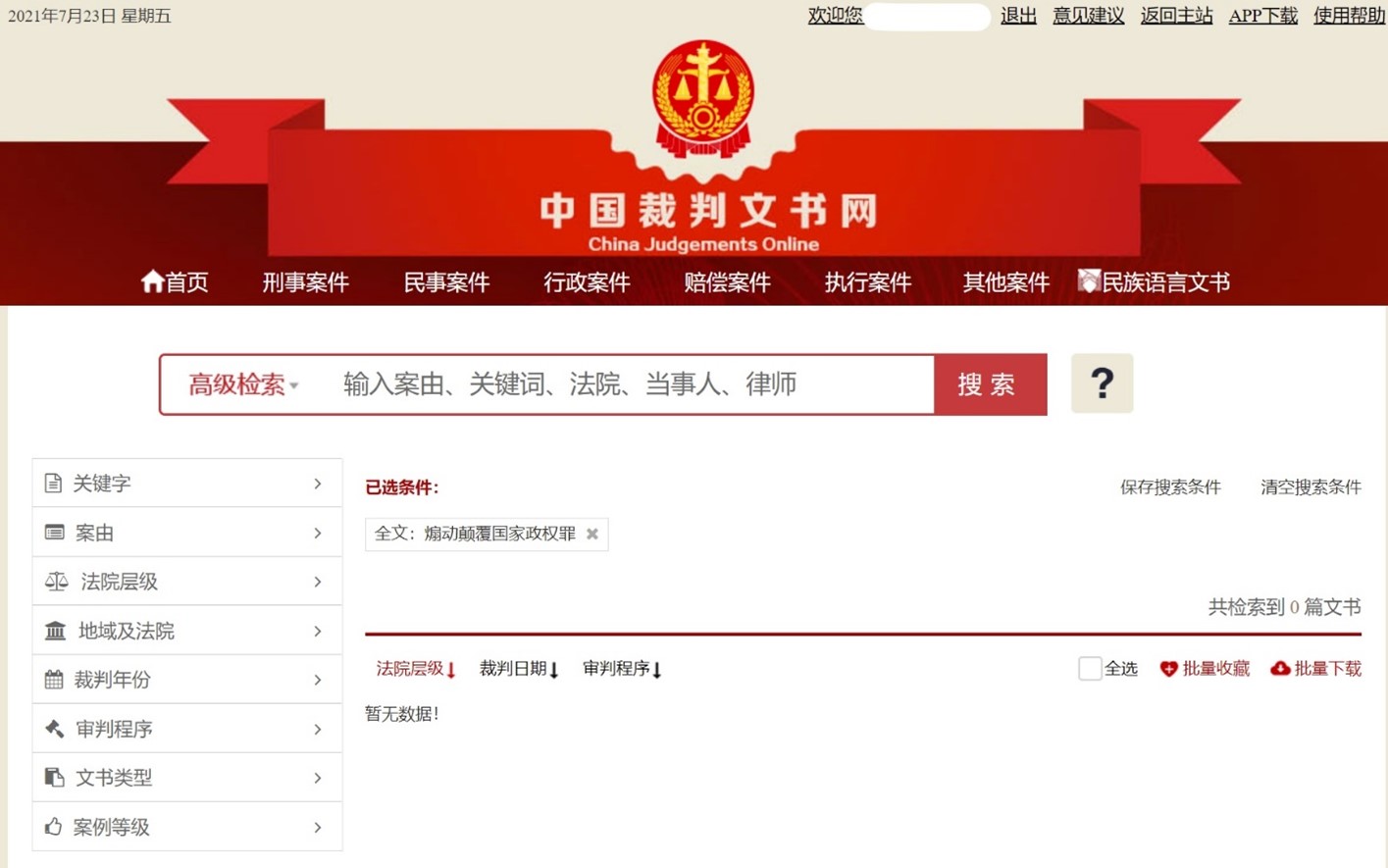
In its submission for China’s fourth UPR, Dui Hua walked back its acknowledgement of progress in judicial transparency over the last two years. The submission chronicles several negative developments, including:
- The purging of the Information Website of the National Courts’ Sentence Reduction, Parole, and Temporary Service of Sentences Outside Prisons.
- The purging from CJO of the entire category of endangering state security (ESS) crimes as well as most of the crimes covered by Article 300 of the Criminal Law, “using a cult to sabotage implementation of the law.” The purge was carried out in June 2021. Dui Hua notes that, prior to the purge, 4,000 judgments of these crimes could be found on CJO.
- The removal from the website of the Supreme People’s Procuratorate of all indictments related to ESS and nearly all indictments related to Article 300 crimes. Prior to the purge there were more than 5,000 documents related to Article 300 arrests or indictments. Now, the Supreme People’s Procuratorate website contains 30 indictments related to this crime.
- The suspension of foreign access to the China National Knowledge Infrastructure website, on which foreign researchers could find publications and statistics on sensitive crimes.
- Difficulties acquiring yearbooks and other publications related to political crime in libraries and bookstores, including those in Hong Kong.
- The reduction of Chinese government responses to United Nations Special Procedures, notably to their queries on ethnic minorities.
Dui Hua’s submission also addresses the heavily criticized use of televised confessions by the Chinese police, as well as the dearth of information on death sentences and executions. There have been no death penalty judgments or review decisions posted on the SPC’s Court News section since July 2022. China Statistical Yearbook stopped releasing statistics on the number of women in prison in 2013.
The deterioration of judicial transparency in China has continued since Dui Hua’s submission in July 2023. In a notice issued on November 21, 2023, the SPC revealed that it will establish and launch a “national court judgment and decision document database” on January 1, 2024. Unlike the existing public judgment website, the new database is only accessible by the court and other judicial personnel on a dedicated internal network. The SPC also indicated that, in the future, only selected highlighted cases will be released to the public judgment website. The development has met with worries and dismay from legal scholars and lawyers. Besides the dwindling number of documents for criminal cases posted to the public judgment website, another indicator for judicial and governing transparency is also diminishing. The number of Administrative Reconsideration decisions has been reduced to almost nil in the recent two years.
How the Event Went
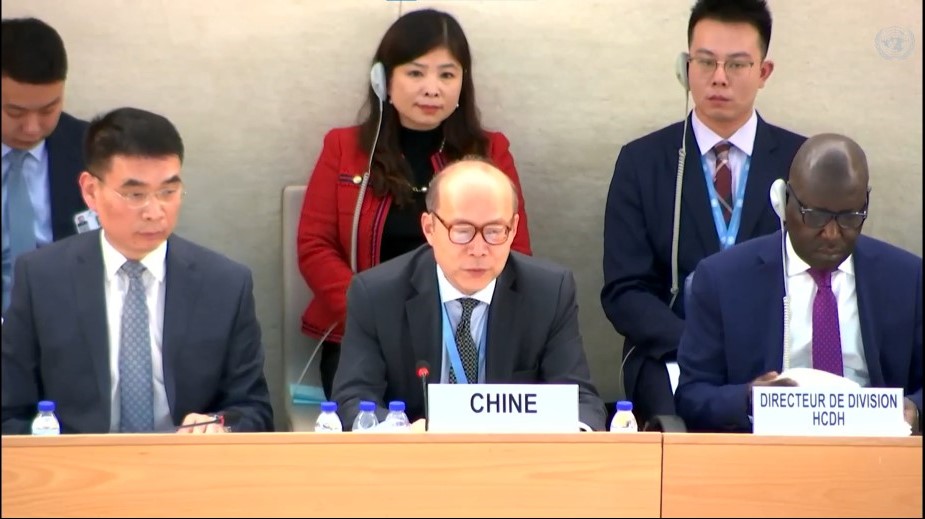
China’s UPR included a mix of criticisms, often advanced by Western nations and those friendly to the United States, and laudatory statements praising China’s “whole process democracy” and “poverty alleviation” from countries that typically support China’s motions at the UN. Among the issues raised repeatedly, according to CHRD, were those related to the use of the death penalty, Hong Kong, Tibet, the treatment of Uyghurs, women’s rights, protections for the LGBTIQ+ community, the persecution of human rights defenders, and the use of enforced disappearances.
Some criticisms took on a more regional focus, for example multiple South American countries raised concerns over China’s overseas business operations and called for more action on business and human rights. Others — in particular calls for China to end its use of the death penalty — enjoyed support across geopolitical lines. As CHRD reported, many states recommended that China ratify the International Covenant on Civil Political Rights and cooperate with UN Special Procedures. Turkey was the rare Muslim majority country to expressly ask China to respect the identity and rights of Uyghurs. Human rights activists held protests outside the Palace of Nations in Geneva to coincide with China’s UPR.
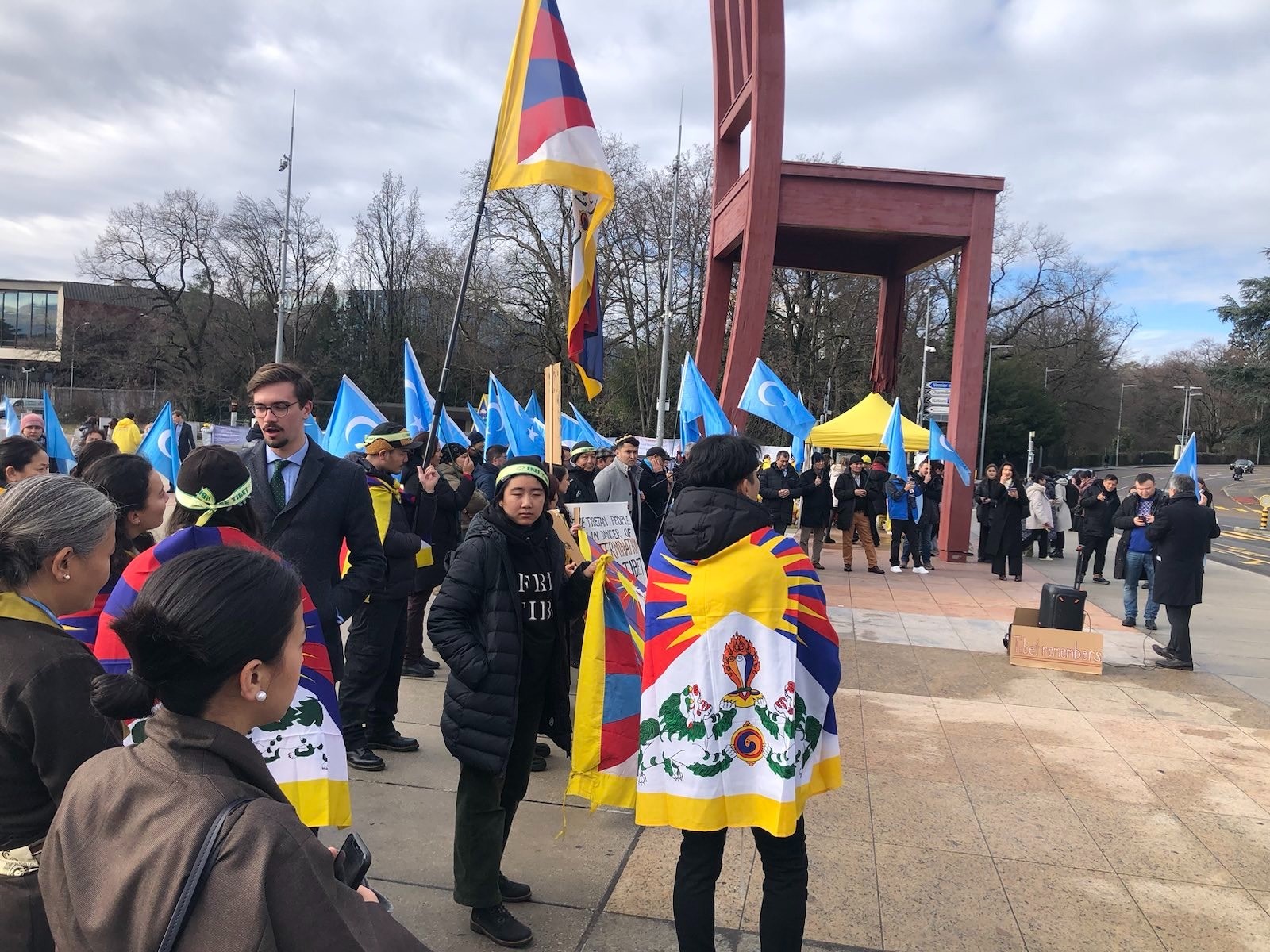
In a press conference following the UPR, Foreign Ministry Spokesperson Wang Wenbin said that more than 120 countries had applauded China’s human rights progress, and the Chinese government has since issued a white paper titled “China’s Legal Framework and Measures for Counterterrorism,” that is thought to be a response to criticisms about its declines in judicial transparency. Dui Hua executive director John Kamm previously discussed the UPR submission and the importance of judicial transparency in a recent episode of the Encounters with China podcast.
Speaking Up, Speaking Out
After the January 23 UPR meeting, China met with the Troika, the three-nation group comprised of Albania, Malawi, and the United Arab Emirates that managed China’s UPR. Together, they decided on the recommendations that will be incorporated into the final report. These will be presented at the summary meeting held in June during the Human Rights Council’s second meeting of the year. On that occasion, NGOs with ECOSOC consultative status like Dui Hua can speak.
Dui Hua’s work at the UN is one part of its unique form of advocacy that seeks to encourage the United States and China to bind themselves to international human rights norms. In addition to all four of China’s UPRs, Dui Hua also made submissions to the United States’ UPRs in 2010 and 2020. These submissions focused on the use of the death penalty and injustices in parole and immigration policy.
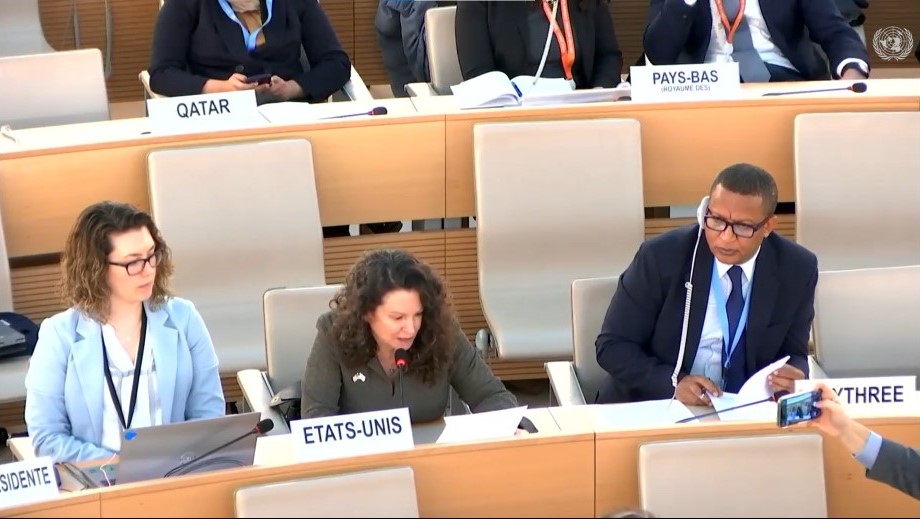
An aspect of Dui Hua’s UN advocacy has been the submission of prisoner lists. In its 2018 submission to China’s third UPR, Dui Hua attached a list of 23 names of prisoners found on the CJO, 17 of whom were in prison at the time the submission was made in March 2018. Subsequent to the submission, four of those named were granted clemency. In its 2023 submission, Dui Hua includes 19 names believed to be subject to coercive measures. The foundation is monitoring their situations and pressing for clemency.
Significant developments at China’s UPR include:
- China’s senior representative was its ambassador in Geneva. At previous UPRs, China was represented by a vice minister or a Special Envoy for Human Rights.
- The United States was represented by an ambassador based in Geneva. No one came out for the event from Washington.
- China no longer refers to Tibet. It uses the term Xizang; and
- China no longer refers to Uyghurs. It uses the term “Chinese citizens from the autonomous region.”
PUBLICATIONS HIGHLIGHTS
New Rules on Religion in Xinjiang: Comparing State Council and Provincial Congress Regulations
From the Human Rights Journal, a blog offering original analysis and translations related to human rights and rule of law developments in China, published January 30, 2024.
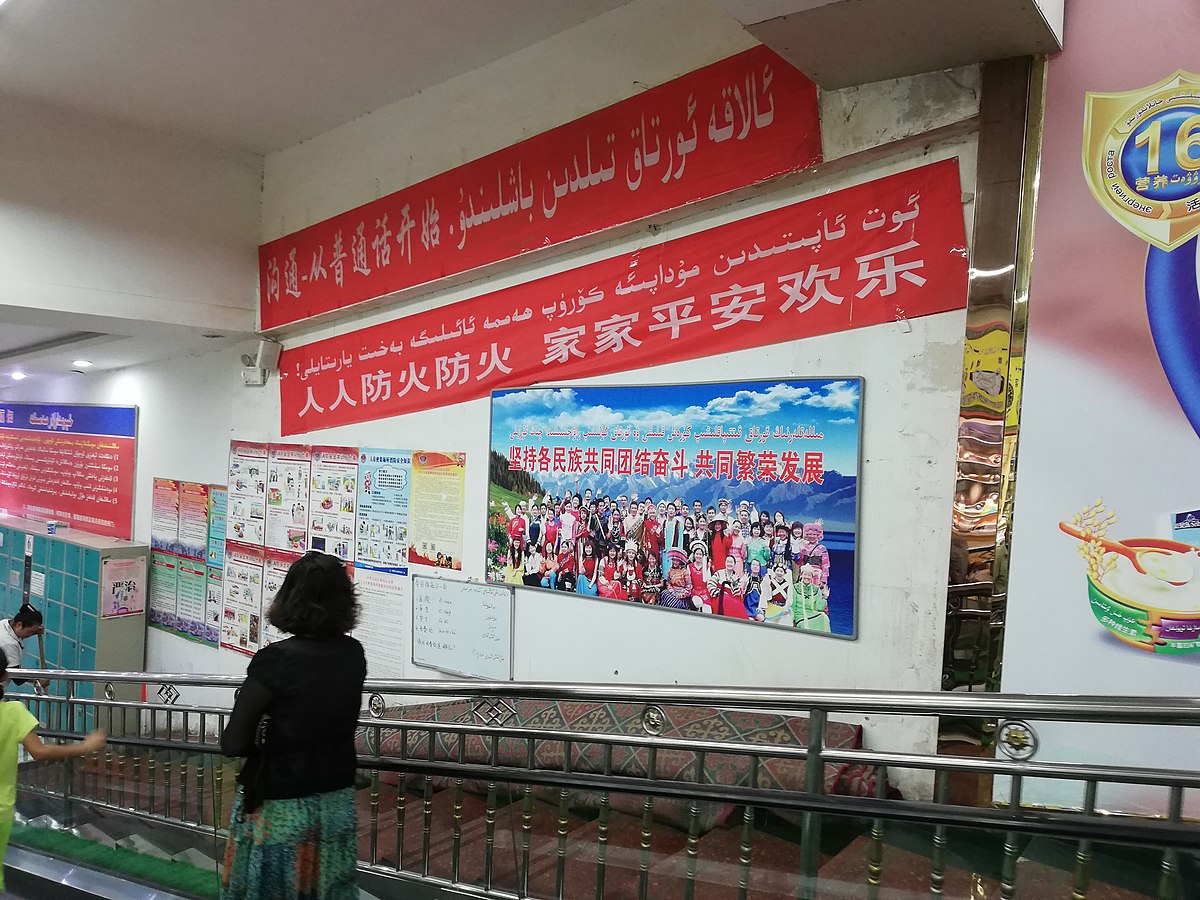
On February 1, 2024, the Xinjiang Uyghur Autonomous Region’s (XUAR) new Religious Affairs Regulation came into effect. The regional regulations place new restrictions on religious institutions in the restive province and have implications for religious life in Xinjiang. The XUAR People’s Congress based these new regulations in large part on the 2018 National Religious Affairs Regulation issued by the State Council, but the Xinjiang regulations introduce several provisions “in consideration of [the] actual circumstances in the autonomous region.” Using translations done by the China Law Translation, Dui Hua has put together a side-by-side comparison of the XUAR Religious Affairs Regulations (2024), hereafter referred to as XJ regulations, and the State Council Religious Affairs Regulations (2018), hereafter SC regulations.
The Surprise Success in Bridging the US & China is a Dialogue on Juvenile Justice
Published in Juvenile Justice Update and republished on January 18, 2024 in the Human Rights Journal.
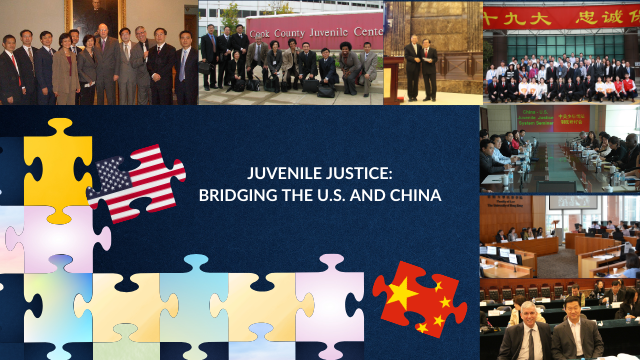
In an article for Juvenile Justice Update’s winter issue, executive director John Kamm details how Dui Hua’s expert exchanges with the SPC on juvenile justice have helped facilitate dialogue and contributed to improvements in policy. The article describes how Dui Hua’s first expert exchange with the SPC, which marked its 15th anniversary last year, brought legal practitioners from both countries together for meaningful discussions on juvenile justice and best practices. Kamm also details progress since then, noting a continuous drop in juvenile convictions in China since 2013, with convictions declining by more than 50 percent.
From “Vineyard” to Prison: The House of Joseph
From the Human Rights Journal on January 11, 2024.
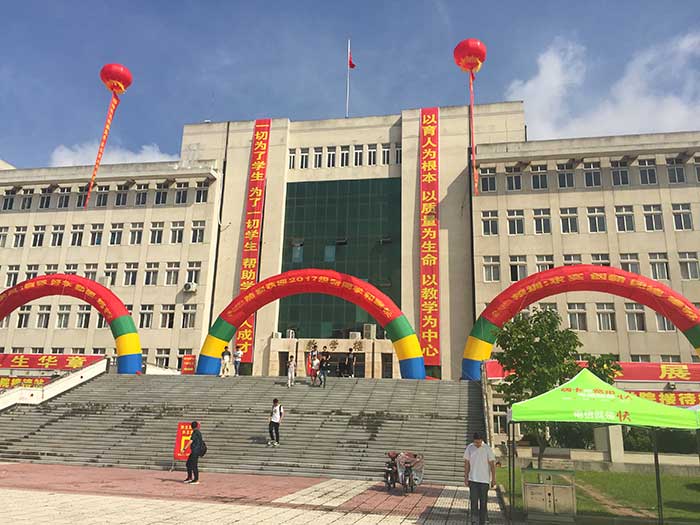
Since the release of its report “The Persecution of Unorthodox Religious Groups in China” in March 2022, Dui Hua continues to identify more unorthodox religious groups, including the House of Joseph, or yuesejia (约瑟家). The House of Joseph is an indigenous Christian group founded in 1992 as an offshoot of the Spirit Church. Like other unorthodox religious groups, the House of Joseph has been accused of illegally amassing a fortune from superstitious believers through “indoctrination” and “mind control.”
ENCOUNTERS WITH CHINA PODCAST
The Encounters with China podcast was launched this August to celebrate Dui Hua entering its 25th year. This podcast series looks at aspects of Dui Hua’s unique form of advocacy as well as issues affecting US-China relations. Previous episodes have covered the Prisoner Information Project (ep 1), China’s Trade Status in Jeopardy (ep 2), Juvenile Justice Exchange (ep 3), the story of Two Good Priests (ep 4), Sealing Juvenile Records: The Importance of a Clean Slate (ep 5), and the APEC summit (ep 6).
The 2024 UPR: China’s Human Rights Report Card at the UN (January 18, 2024)

In the lead-up to China’s human rights review at the United Nations on January 23, host Samy Amanatullah speaks with Dui Hua executive director John Kamm about Dui Hua’s work at the United Nations, the Universal Periodic Review of human rights, and how an NGO like Dui Hua can advocate for political and religious prisoners at the United Nations. This far-reaching conversation also dissects how the Universal Periodic Review works, the international treaties that underpin human rights norms, and how the United States and China compare when it comes to adhering to human rights treaties.
PRISONER UPDATES
Dui Hua’s Prisoner Updates provide the latest information staff researchers have uncovered through online and library research and through direct dialogue with the Chinese government.
Independent investigative journalist sentenced for multiple charges; feminist labor rights activist Li Qiaochu trial commenced & suspended; Shanxi lawyer briefly taken by police without cause.
